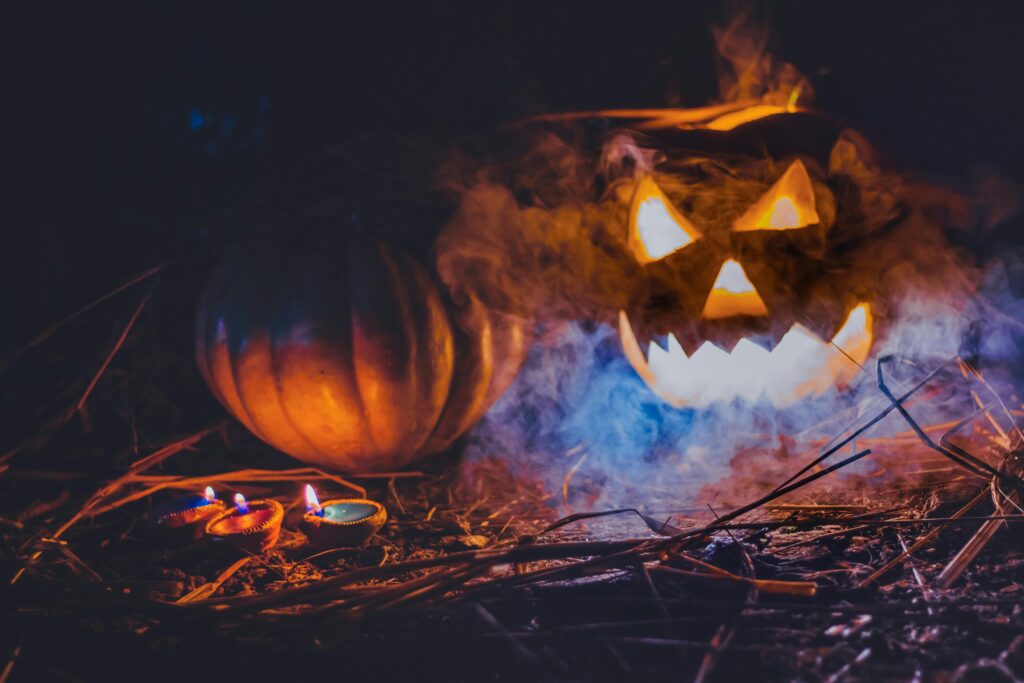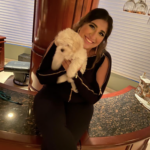
This Oct. 31 brought candy and scary costumes, as well as fireworks, candles and mithai (sweets).
Halloween and Diwali fell on the same date this year because of the lunar calendar, meaning people across different communities and backgrounds are finding different ways to celebrate and honour their respective traditions.
“Creating an inclusive space is so important to me, so at the beginning of the year I invite all my students to share what they celebrate throughout the year which helps me plan activities and [decorations] that reflect our diverse community,” said Sandeep Kaur Gill, teacher and author, in her TikTok video decorating her classroom to prepare for Diwali.
Halloween is known for its eerie atmosphere, scary costumes, jack-o-lanterns, trick-or-treating, eating candy and parties.
The holiday marks the beginning of Allhallowtide which is a three-day celebration dedicated to remembering the dead, according to Britannica. It begins on Halloween (Oct. 31) continues with All Saints’ Day (Nov. 1) and concludes with All Souls’ Day (Nov. 2).
“Halloween is a day for us to remember traditions we followed back in Mexico,” said Mária Fernanda Salas Sánchez, president of OLAS (Organization of Latin American Students).
“When I was little, my cousins and I used to go out trick-or-treating until our feet hurt,” said Sánchez, a third-year student in Toronto Metropolitan University’s HR management program from Monterrey, Mexico.
Diwali is known as the Festival of Lights, a celebration that commemorates the idea of good triumphing over evil and light over darkness. For many South Asian families, the celebration is filled with firecrackers, mithai, prayers and hopes for good fortune in the new year, according to Link ahra.
“For me, its celebrating the homecoming of our Lord Ram and it is a time of year where all families come together, do firecrackers, make and eat good food, and play games,” said Hetu Patel, president of the Hindu Students’ Association and a third-year computer science student at TMU.
“Diwali is all about bonding with the people you love and spreading light over darkness,” Patel said.
The dates of the holiday change every year as the date is determined following the lunar calendar. Diwali originated in India 2,500 years ago and is usually observed for as many as five days depending on where and how a person chooses to celebrate.
As an international student, Patel says that celebrating away from home is a very different experience.
“Diwali is celebrated in different segments and back home we celebrate it very traditionally,” said Patel.
Many celebrants will light diyas (small lamps filled with oil) all around homes on the night of the new moon to welcome Goddess Lakshmi, the goddess of wealth, good fortune, happiness, youth and beauty.
“My mom told me that I have to be at home for all the pujas so I gave her an 8 p.m. cutoff so that I can get out of my Indian clothes and into my halloween costume,” said Nikita Aswani, a second-year business student at the University of Toronto.
For Diwali, the Hindu Student Association (HSA) is hosting Khushiyo Wali Diwali, the association’s first Diwali celebration, which consists of a night filled with games, food and fun. “Expect delicious food, traditional music, and the warmth of togetherness,” HSA wrote on Instagram.
For Halloween, “we are hosting Noche de Muertos … in partnership with SUAH, a Latin Club, and OLAS York,” said Sánchez. “We hope to create a space where our members can let loose, have a nice time and celebrate.”
“Honestly, I don’t know what Diwali is and I had no clue it is on the same day,” said Sánchez.
With Diwali and Halloween falling on the same day, there is a chance for cultural fusion with blending Diwali’s rituals with the playfulness of Halloween allows for a new way to celebrate both festivities, according to The Economic Times.
“I love celebrating Diwali, doing all the pujas in my house and parents’ shops, eating all the mithai, lighting up the candles, lighting the sparklers and just spending time celebrating with the people I love most,” said Aswani.
“But I also love dressing up in a spooky costume, eating lots of candy, going out with my friends, and watching scary movies.”
Reporter, On The Record, Fall 2024
This article may have been created with the use of AI tools such as Google Docs, Grammarly, and/or Otter.ai for transcription.

